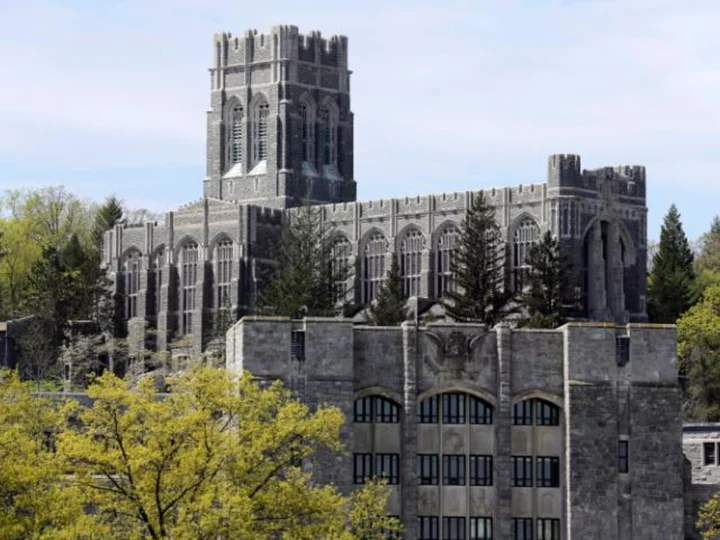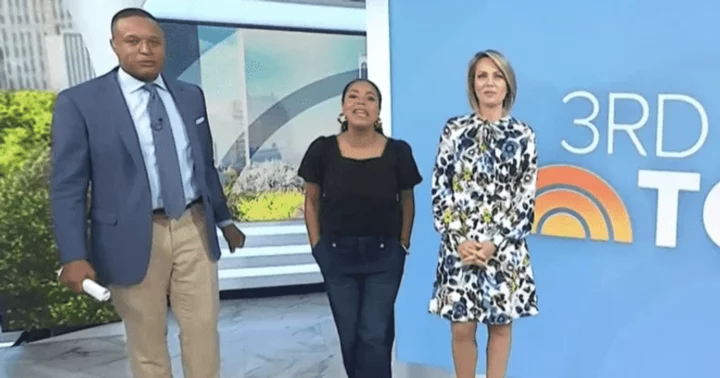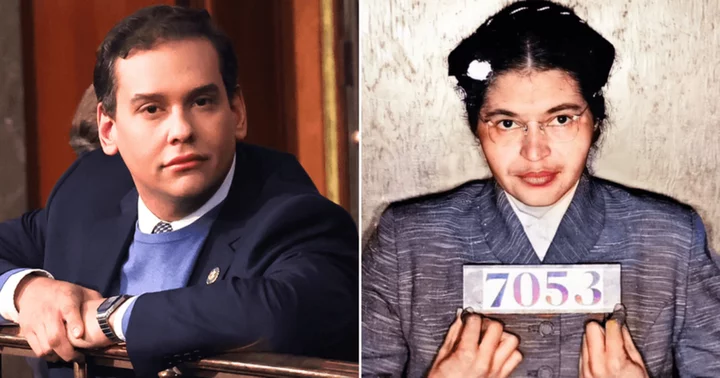The US Military Academy at West Point is being sued for its race-based admissions policies by the same group that won a landmark case against Harvard University and the University of North Carolina at Chapel Hill in the Supreme Court over affirmative action earlier this year, according to a lawsuit filed Tuesday.
In June, the Supreme Court ruled that colleges and universities could no longer take race into consideration as a specific basis for granting admissions -- except for US military service academies. It was a significant decision against affirmative action policies, which have focused on improving opportunities for historically excluded minorities.
The new lawsuit asks the court to find the use of race in admissions at the military academy in New York unconstitutional and prohibit them from "considering or knowing" an applicant's race during the admissions process.
"West Point has no justification for using race-based admissions. Those admissions are unconstitutional for all other public institutions of higher education," Students for Fair Admissions, a conservative group, said in the complaint. "The Academy is not exempt from the Constitution...Because West Point discriminates on the basis of race, its admission policy should be declared unlawful and enjoined."
When reached by CNN, a spokesperson for West Point said, "The U.S. Military Academy does not comment on ongoing litigation to protect the integrity of its outcome for all parties involved."
West Point has nearly 4,400 undergraduates, 2,693 of whom are White, 483 Black or African American, 545 Hispanic/Latino, 414 Asian and 38 American Indian or Alaska Native, according to October 2022 data from West Point's website.
"West Point sets benchmarks for the percentage of each class that should be filled by 'African Americans,' 'Hispanics,' and 'Asians,' and it meticulously tracks its compliance with those figures down to a tenth of a percentage point," the suit alleges.
"Race is, indeed, determinative for hundreds of applicants each year," the suit alleges.
Applicants nominated by US representatives and senators make up 75% of each incoming class, the suit states, citing the military academy.
The suit also adds that "in most cases, up to ten qualified applicants compete against one another for the single slot afforded to their Senator or Representative each year."
"Because skin color can be—and often is—a decisive factor for successful applicants who are chosen from those congressional nominee pools, it is equally dispositive for the other qualified nominees who are turned away. Put differently, because race is a "positive" factor for some West Point applicants, it is necessarily a "negative" factor for others," it adds.
Students for Fair Admissions has two members who are White males who are set to apply to West Point, according to the complaint.
The group argues that because the Academy uses race as a factor in admissions, both are prevented from competing for admission on an "equal footing."
"If West Point is allowed to continue making admissions decisions based on applicants' race, SFFA's members—including Members A and B and other similarly-situated applicants—will suffer harm because they will be denied the opportunity to compete for a West Point appointment on equal grounds, solely because of their race," the suit claims.
In the Supreme Court ruling that gutted affirmative action, Chief Justice John Roberts wrote the opinion for the conservative majority, saying the Harvard and UNC admissions programs violated the Equal Protection Clause because they failed to offer "measurable" objectives to justify the use of race. He said the programs involve racial stereotyping and had no specific end point.
In a footnote, Roberts said the cases before the court did "not address the issue" and left open the possibility that there are "potentially distinct interests that military academies may present" in a future case.









